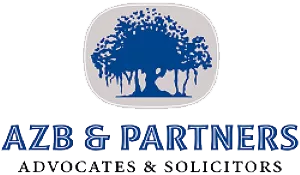On December 22, 2015, the CCI had passed a closure order,1 rejecting Meru Travel Solutions Private Limited's ('Meru') allegations that Uber India Systems Private Limited ('Uber') was engaging in predatory pricing and imposing exclusivity restrictions on its drivers, in violation of Sections 4 and 3(4) of CA02.2 The CCI questioned the credibility of the market report submitted by Meru ('Tech Sci Report') because it was prepared without interviewing any of the personnel of Uber. Further, the CCI noted a disparity between information in the Tech Sci Report, and another market report ('6Wresearch Report') relied upon by the CCI in an prior similar case3. Thus, in the absence of any credible market related information, the CCI refused to consider Uber as a dominant entity in the relevant market.
Meru challenged the CCI's decision before the Competition Appellate Tribunal ('CompAT'), which was of the opinion that the disparity in the information between the Tech Sci Report and the 6Wresearch Report was an adequate justification for directing the Director General ('DG') to investigate further into the matter. Further, while the CompAT did not conclusively hold Uber to have violated CA02, it noted that the large discounts provided by Uber certainly warranted further investigation. In light of the above, the DG was directed to investigate and submit its report on the matter. This order of the CompAT was appealed by Uber to the Supreme Court of India ('SC').
The SC passed its decision on the matter on September 3, 2019. The SC observed that Uber priced its services such that it intentionally made a loss of Rs. 204 per trip, and could not find any valid economic rationale for the same. The SC opined that the aforementioned pricing pointed towards Uber's intent to eliminate competition in the market. Further, the SC noted that as per Explanation (a)(ii) to Section 4 of CA02, an entity would be considered 'dominant' if it held a position of strength which would affect its competitors in its favour. Accordingly, the SC held that the abovementioned pricing would certainly affect Uber's competitors in an adverse manner, which would be advantageous to Uber, , and saw it fit to not interfere with the CompAT's order. The appeal was dismissed, and the DG was directed to complete its investigation within six months.
Footnotes
1. Meru Travel Solutions Private Limited v. Uber India Systems Private Limited, Case No. 96 of 2015.
2. Uber India Systems Private Limited v. Competition Commission of India, Civil Appeal No. 641 of 2017.
3. Fast Track Call Cabs Private Limited v. ANI Technologies, Case No. 6 & 75 of 2015.
Published In:Inter Alia Special Edition- Competition Law - November 2019 [ English
Date: November 11, 2019
The content of this article is intended to provide a general guide to the subject matter. Specialist advice should be sought about your specific circumstances.

